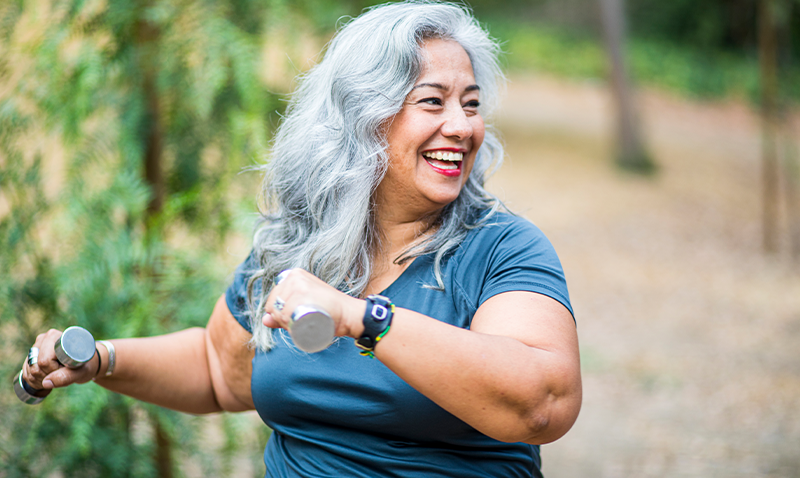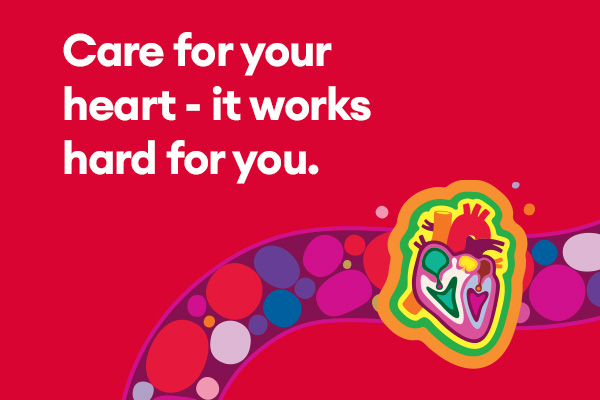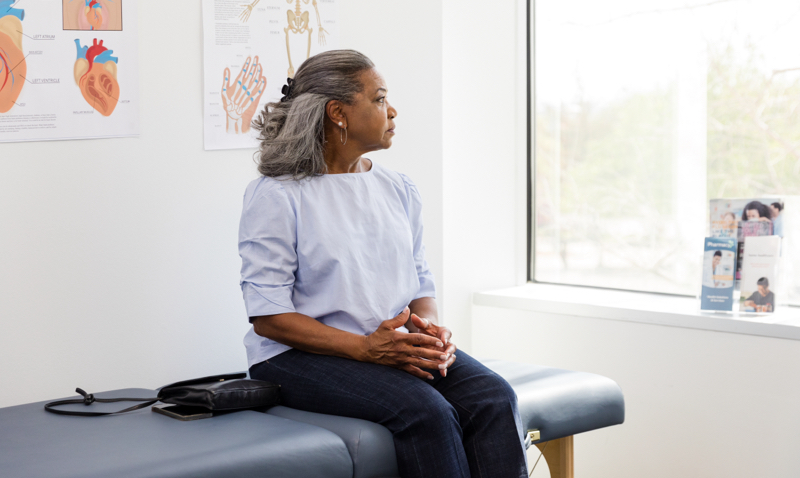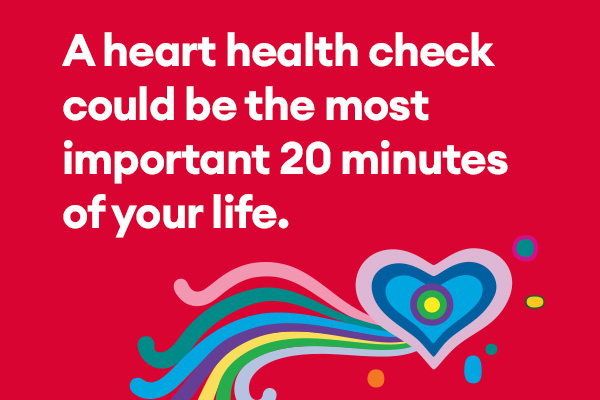Written by Medibank
January 2024
On its own, a specific type of cardiovascular disease, called coronary heart disease, claims the lives of 20 women in Australia each day – almost 3 times as many women who lose their lives to breast cancer.
Yet, research indicates that heart disease in women in Australia is still not adequately recognised or diagnosed for various reasons. Fortunately, there are some key facts to know and simple steps you can take to understand and reduce your risk.

What causes heart disease in women?
Cardiovascular disease – often just called heart disease – includes a number of different diseases and conditions.
The most common and serious types of cardiovascular disease are conditions that cause blood vessels to become narrow or blocked. This can lead to having a heart attack or a stroke.
While some types of heart disease affect more women than men, other types – like stroke – are often more serious for women.
As heart disease is often not well recognised in women, research also shows that women are much less likely to undergo treatment for heart attack in hospital than men. Symptoms of heart attack can also be non-specific or vague, and women aren’t as likely as men to seek help immediately.
Women can experience the traditional cardiovascular-disease risk factors, such as carrying too much weight, eating an unhealthy diet and having high blood pressure. There are also some gender-specific risk factors for heart disease. These include pregnancy complications, such as gestational diabetes and pre-eclampsia, as well as polycystic ovarian syndrome and autoimmune diseases that affect women more than men, including multiple sclerosis and rheumatoid arthritis.
Can menopause affect your heart?
Yes. Heart disease can occur at any age and life stage, but the risk for women does increase significantly around menopause. One reason for this is oestrogen. This hormone is thought to offer some protection against heart disease by supporting the flexibility of the heart’s blood vessels and arteries, and oestrogen levels drop dramatically around menopause.
As oestrogen levels fall, the risk of high blood pressure, high blood sugar, high cholesterol levels and storing fat around the waist increases – and all of these things increase the risk of heart disease. While most women have experienced menopause by the time they turn 55, women who experience menopause before they turn 45 may have an even higher risk of cardiovascular disease.
What are the symptoms of heart attack in women?
Chest pain is considered the most common sign of a heart attack, but only half of the women who experience one actually get chest pain.
Instead, women who have a heart attack may feel some of the following symptoms:
- Back, neck or jaw pain or tightness.
- A burning sensation in the chest.
- Chest discomfort.
- Dizziness.
- Vomiting.
- Fatigue.
- Light-headedness.
- Nausea.
- Shortness of breath.
- Sweating.
A heart attack is a medical emergency. If you experience warning signs, call an ambulance.

24/7 Medibank Nurse Support
Medibank health insurance members can speak to a registered nurse at no extra cost.1 Chat over the phone or online, any time of the day or night.
1 Some referred services may involve out of pocket costs and waiting periods may apply.
How can I reduce my risk of heart disease?
While some risk factors involve things you can’t change, such as growing older and having a family history of cardiovascular disease, there are other risk factors that you can modify to improve your heart health.
One in 2 women in Australia have at least 2 of these risk factors,1 which can be addressed by adopting the following lifestyle habits:
1. Eat a heart-healthy diet
Consuming too much saturated fat, salt and sugar not only increases the risk of being overweight, it can also contribute to high cholesterol and high blood pressure. Both of these can increase the risk of something called atherosclerosis, where fatty material called plaque builds up in the arteries. While there’s no single cause of cardiovascular disease for women, it’s atherosclerosis that’s thought to be one of the main underlying causes.
2. Be active
Leading an inactive lifestyle also increases the risk of being overweight and having high blood pressure and high cholesterol.
3. Maintain a healthy weight
On its own, carrying too much weight is considered a risk factor for cardiovascular disease, but it can also increase the risk of other heart-disease risk factors, including high cholesterol, high blood pressure and developing type 2 diabetes.
4. Drink less alcohol
Over time, drinking too much alcohol can increase blood pressure, negatively impact cholesterol levels and cause damage to the heart muscle.
5. Reduce stress
Chronic stress can not only amplify some other heart-disease risk factors, it can physically damage the heart’s arteries. And unfortunately, women’s hearts seem to be more susceptible to the impact of stress than men’s.
How can I keep my heart healthy during pregnancy?
Following the healthy heart tips listed above is a good place to start.
If you develop high blood pressure, pre-eclampsia, or gestational diabetes during your pregnancy, you’ll be closely monitored by your healthcare team. Experiencing these pregnancy-related complications also makes it important to have your blood pressure and your diabetes risk monitored annually after baby is born.
How can I keep my heart healthy after 50?
Do what you can to address the modifiable risk factors mentioned above.
Prevention of heart disease also involves catching and treating any risk factors as early as possible, so regular Heart Health Checks are recommended to all women aged 45 years and over, or 30 years and over for Aboriginal and Torres Strait Islander peoples.

Medibank Type 2 Diabetes Program
This 12-month program includes consultations with a dietitian and a supported meal plan that aims to help eligible members achieve a healthy weight and manage their type 2 diabetes. Clinical and product eligibility criteria apply.
Read more about heart healthy living
Looking for something else?
Visit Heart health for more information.
Things you need to know
*,1 Health Direct; Heart attack symptoms: men vs women; retrieved June 2023
While we hope you find this information helpful, please note that it is general in nature. It is not health advice, and is not tailored to meet your individual health needs. You should always consult a trusted health professional before making decisions about your health care. While we have prepared the information carefully, we can’t guarantee that it is accurate, complete or up-to-date. And while we may mention goods or services provided by others, we aren’t specifically endorsing them and can’t accept responsibility for them. For these reasons we are unable to accept responsibility for any loss that may be sustained from acting on this information (subject to applicable consumer guarantees).










